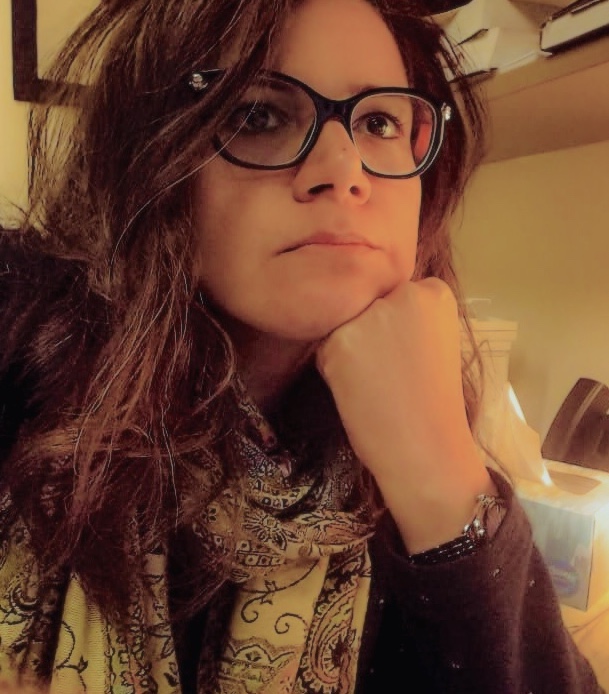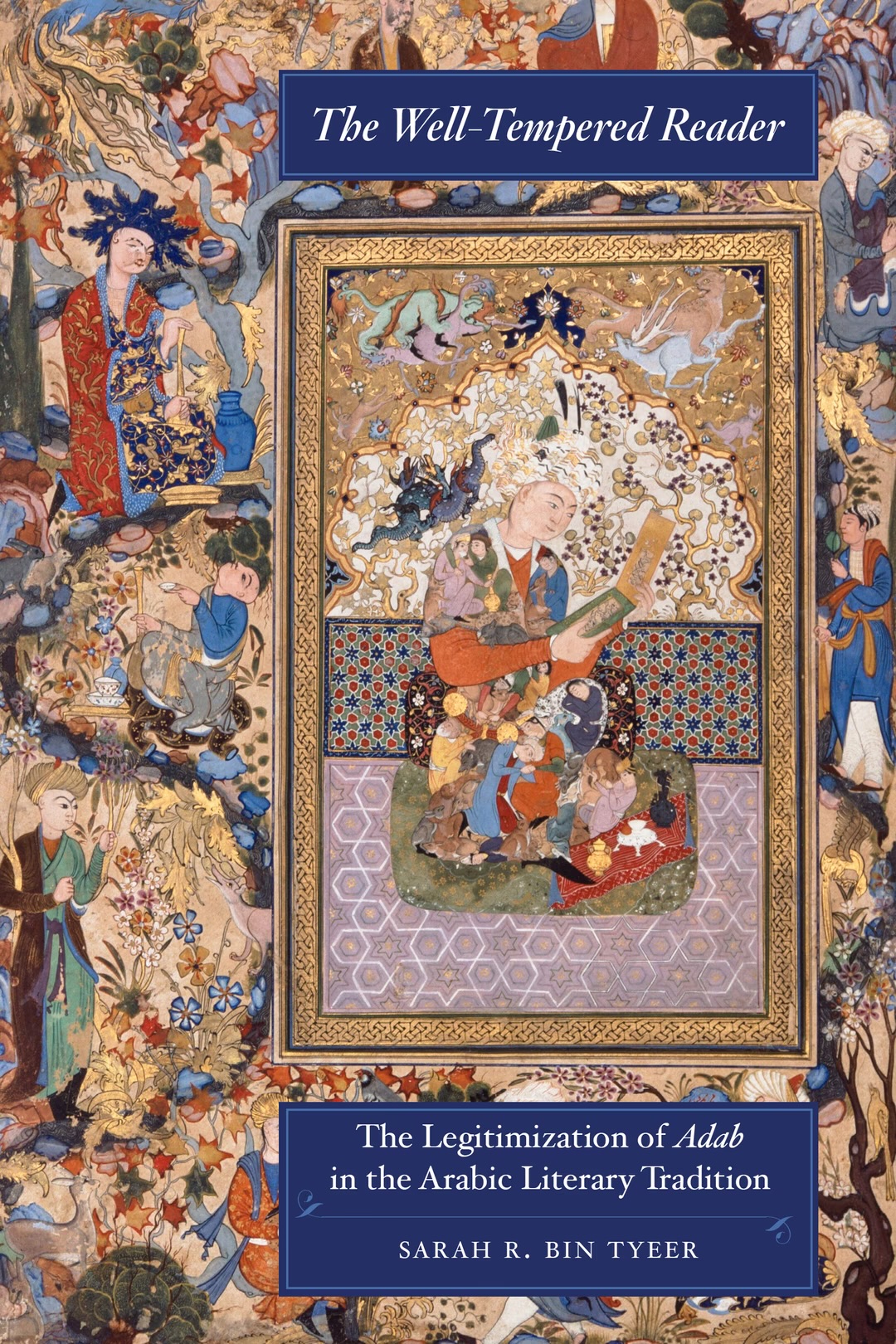Adab, Classical and Modern Arabic Languages, Literatures, and Cultures; Qur’anic Studies; Comparative Literature; History of Emotions, Ethics and Aesthetics, the intersection between Adab, Literature, and Islamic Sciences and Studies, History of Literary criticism; Theory of literature.
I am a comparatist by training, a philologist at heart, but above all, I am an adabist, my expertise and research are home at MESAAS, but I am also affiliated with the Institute of Comparative Literature and Society (ICLS), Middle East Institute (MEI), and the Medieval and Renaissance Studies (MedRen) at Columbia University. Just like our premodern mentors and temporally distant colleagues, the adabists of the Islamicate, whose intellectual interests and research aspirations and desires were not only diverse but inter- and post-disciplinary avant la lettre as their scholarly output attest, I identify with, espouse, and encourage adab-minded intellectual and research postures that are pursuant to more than one discipline in research. I am interested in the hermeneutical horizons of texts and their aesthetic, ethical, and emotional worlds and culture of meanings they create. As my work interweaves both classical and modern Arabic texts, adab, and Islamic Studies; disciplines that cannot be really divorced from each other especially in the premodern period; I make use of methodologies, analytical tools, and frameworks of the Islamicate, philology, Islamic Studies, hermeneutics, and also post/decolonial studies.
My first monograph, The Qur’an and the Aesthetics of Premodern Arabic Prose (Palgrave Macmillan, 2016), was born out of incessant questions related to one-way traffic in literary theory, epistemic delinking, and the decolonization of knowledge in the academy. It theoretically resists the prevalent assumptions about premodern Arabic literature that were facilitated in the past by outdated methodologies and approaches. The book takes the Qur’an as a primary source for delineating frameworks of moral and aesthetic ugliness, and by extension beauty, and in turn establishing meaningful tools and terms for literary criticism within the discipline of classical Arabic literature (adab). Focusing on the moral-aesthetic dimension of the Qur’an, this methodology opens up new horizons for reading adab by reading the tradition from within the tradition and thereby examining issues of “decontextualization” and the conceptually “untranslatable.” This approach, in turn, invites Comparatists, as well as Arabists, to consider other means and perspectives for approaching adab besides Western theoretical models. Applying this critical strategy to literary works as diverse as One Thousand and One Nights, the maqāmāt, and al-Maʿarrī’s The Epistle of Forgiveness. The book aims to prove how modern literary terms and tools and approaches are sometimes anachronistic as well as anatopistic and therefore theoretically inappropriate when applied to certain literary works. That being said, the book is an invitation to develop Arabic poetics on its own terms.
The Qur’an and Aesthetics of Premodern Arabic Prose garnered scholarly interest in both the Global North and Global South, some reviews for the book here:
Los Angeles Review of Books LARB Quarterly
Journal of the International Qur’anic Studies Association
In 2019, just before the pandemic hit and moved everything on Zoom, I started a new initiative, the Adab Colloquium, with my colleague Matthew L. Keegan (Barnard). The Adab Colloquium was born during the pandemic on zoom in 2020. I can see the allure and intimacy of the in-person meetings and workshops, but I also see the silver lining of having such an initiative online as it allows various interested parties (participants, discussants, audience, students) from across the U.S. and the World to just tune in via zoom at the comfort of their home or office (and comfortable clothes!) and participate and type away their questions in the chat box to us, especially as travel is becoming difficult in certain parts of the world or even unmanageable to some. The Adab Colloquium brings together every month during the academic year scholars of Islamicate languages who study the cross-cultural, transregional phenomenon of adab and adab practices of reading, writing, and performance from the 6th century down to the 19th century.
I co-edited Islam and New Directions of World Literature (2022), which takes the concept of the geographical and cultural Islamicate and its multilingual past geographies and literatures as world literature. The volume covers a variety of global location to discuss the Islamicate as developed in Western European, Turkic, Indo-Persian, Middle-Eastern, African, Indonesian, and Chinese literatures as it understands these cultural heritages as dynamic forces constantly enlivened by various humanistic traditions in multiple languages, spanning the lives of individuals and societies throughout history. The volume puts forth the argument to reconsider the epistemic assumptions that undergird the study of not just world literature but literature at large as well as forms of cultural production.
I continue to be interested in questions of history of reading and hermeneutics, ethics and aesthetics; I am also intrigued by questions of language and how they relate to the history of concepts and the history of emotions and the expression of experiences and emotional thought in literature and culture not just to pose our queries to these texts, but to develop the tool to ethically read the texts through their conceptual and theoretical grammars.
Undergraduate courses regularly taught: Asian Humanities (global core); Premodern Islamic Worlds (global core); Literature Humanities (Core).
Graduate courses (all 4000-level) taught: Themes in the Arabic Novel; Arabic Literature as World Literature; Readings in Classical Arabic Texts; Literary Encounters; Wanderlust: Readings in Arabic Travel Writing
I have been on the Modern Language Association (MLA) executive board for the Arabic Forum on Language, Literatures, and Culture for the Modern Languages Associations; book review editor for the Journal of Arabic Literature; on the advisory board for Columbia Manuscripts of the Muslim World Project (2018-2021).
Selected forthcoming and recent publications:
Books:
The Qur’an and the Aesthetics of Pre-modern Arabic Prose. (Palgrave Macmillan, 2016).
Co-editor with Claire Gallien, Islam and New Directions in World Literature, Edinburgh University Press, 2022.
Forthcoming & Recent Articles and Chapters:
- “Ethics and Classical Arabic Literature” in Oxford Handbook of Islamic Ethics, edited by Mustafa Shah (Oxford: Oxford University Press, forthcoming)
- “Qur’ānic hermeneutics in adab” in the Handbook of Qur’ānic Hermeneutics, edited by Georges Tamer (Berlin: Walter De Gruyter, forthcoming)
الآثار النصّيّة: بين التناص والتوليد لخلق الوعي التاريخيّ
– “Textual Traces: Between Intertextuality and Filiation in the Making of Historical Consciousness”, al-Markaz: Majallat al-Dirāsāt al- ʿArabiyya, 1 (2022): 204-26. Brill. [in Arabic] [view here, link open in pdf]
– “The Literary Geography of Meaning in the Maqāmāt of al-Hamadhānī and al-Ḥarīrī” in The City in Pre-Modern and Modern Arabic Literature, ed. Nizar F. Hermes and Gretchen Head (Edinburgh University Press, 2019), 63-80. [view here, link open in pdf]
– “Writing to the End of Love: Waḥīd and the Motif Extremes of Ibn al-Rūmī,” in Beloved: Loveand Languishing in Middle Eastern Languages and Cultures, ed. Michael Beard, Alireza Korangy& Hanadi El Samman (I.B. Tauris, 2018), 13-40. [view here, link open in pdf]]
– “The Qur’an and the Aesthetics of adab” in The Qur’an and adab, ed. Nuha al-Shaʿar(Oxford University Press & Institute of Ismaili Studies, 2017), 273-312. [view here, link open in pdf]






